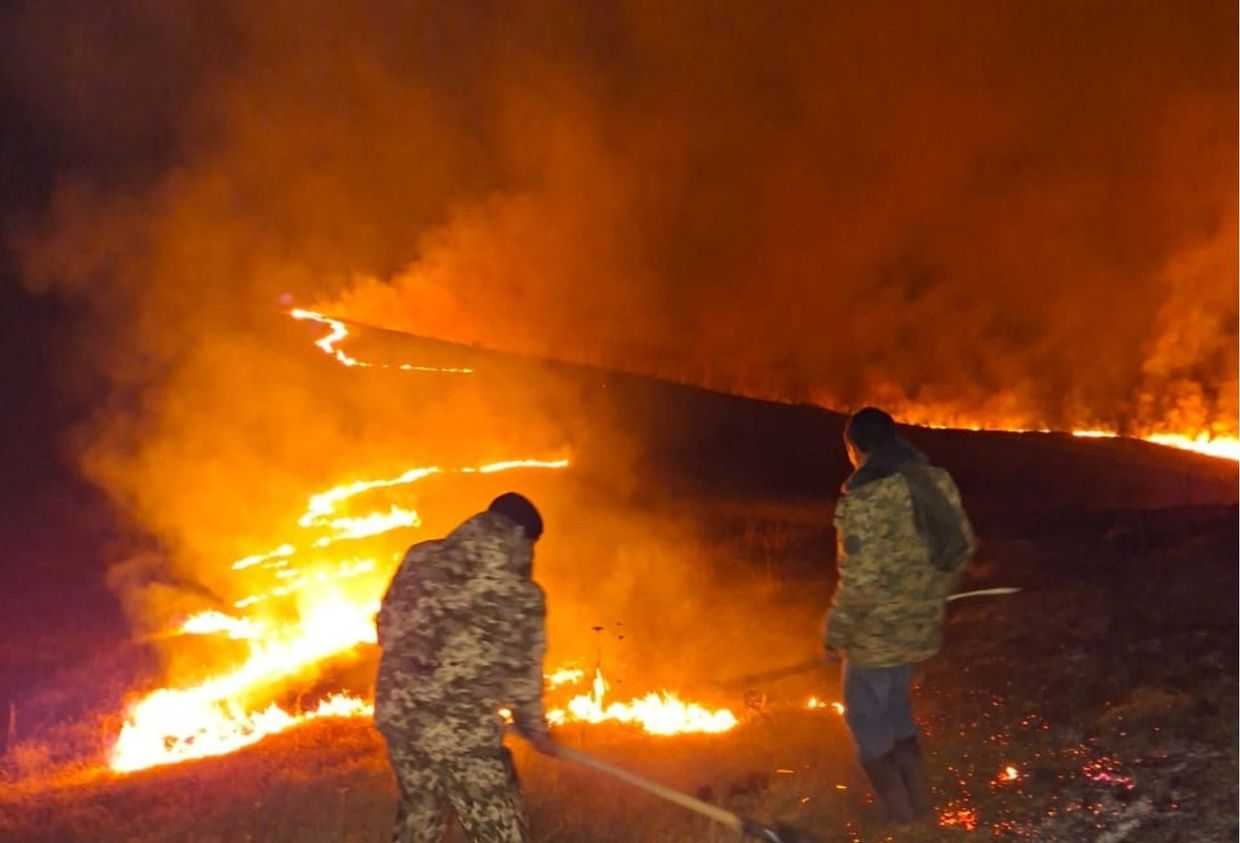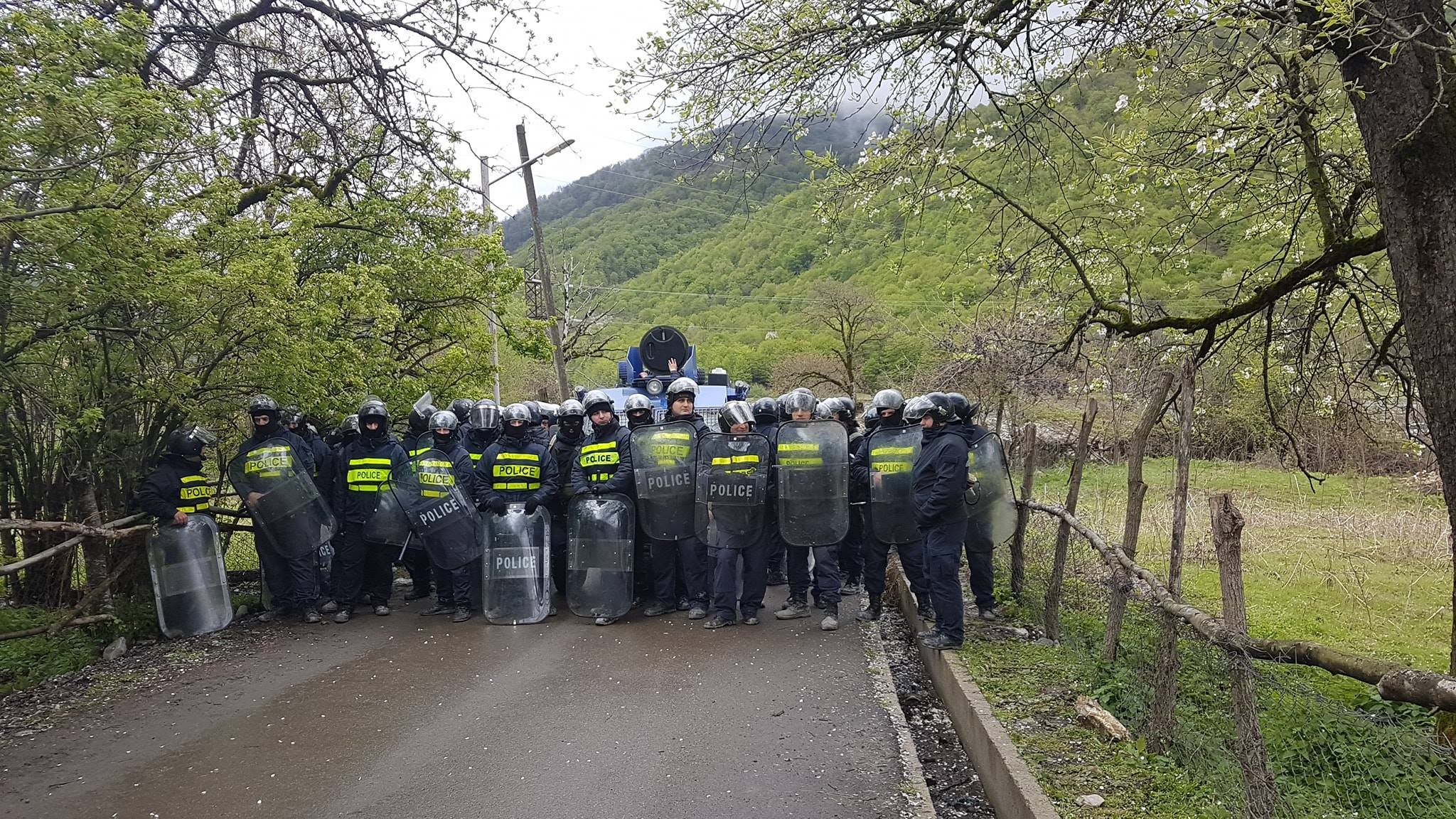
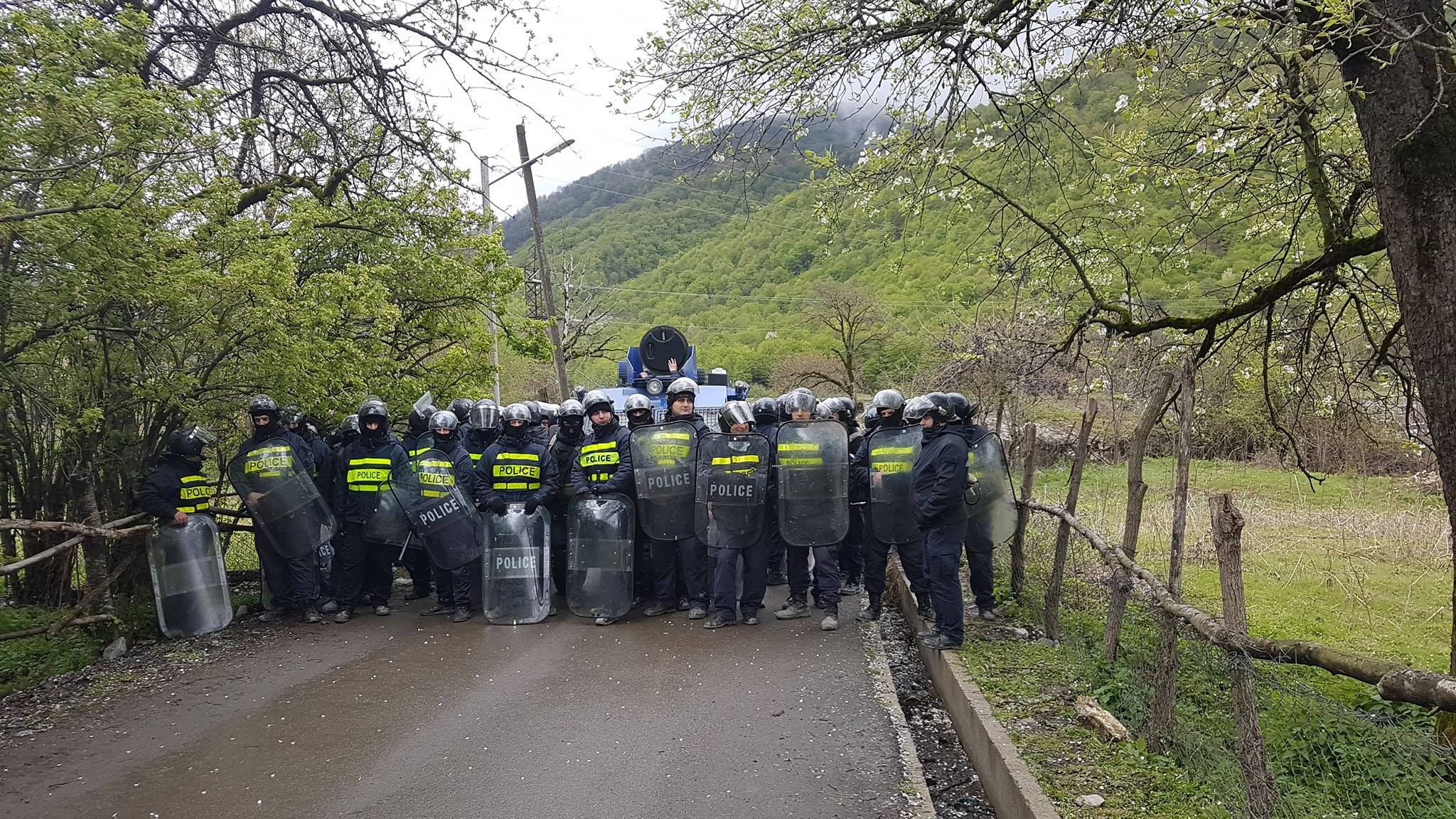
Riot police have deployed rubber bullets and tear gas against protesters in northeast Georgia’s Pankisi Valley after local residents tried to prevent the resumption of work on a hydropower plant in the valley.
Seventeen local residents and 38 police officers required medical attention following clashes between riot police and protesters, a police statement reads. According to the statement, as of Sunday evening, 23 police remained hospitalised.
Several hundred inhabitants of the valley, which has a majority Kist population, gathered after construction work on the Khadori 3 hydropower plant (HPP) in the village of Birkiani resumed on Sunday.
Police accompanied construction workers to the construction site of Khadori 3, which has long been a bone of contention between the local population and the authorities. There are already two HPPs on the valley’s River Alazani.
[Read the view of the OC Media team: Editorial | Georgia’s show of force in Pankisi was reckless and irresponsible]
According to local radio station Radio Way, seven protesters were taken to a police station in the regional capital, Telavi. The Interior Ministry reported that some protesters threw stones and sticks at the police, following which riot police were deployed, which was when the confrontation escalated. Police responded by firing rubber bullets and tear gas at the crowd, while protesters damaged or burnt several police cars and other equipment.
Riot police advance on protesters opening fire with rubber bullets and tear gas (Sulkhan Bordzikashvili /Facebook)
Following the violence, Interior Minister Giorgi Gakharia travelled to the scene, holding a closed meeting with protesters.
During a break in the meeting, Gakharia said it was necessary to calm the situation and ‘find out who was to blame’, adding that ‘throwing stones’ wasn’t a solution to the dispute over hydropower plants.
The Ministry of Economy told OC Media that construction work was now on hold until an agreement was reached between the construction company and the local population.
According to the 2014 census, there are only 5,700 Kists, or Pankisi Chechens, in Georgia and the number is now likely much lower due to reported mass migration in the recent years. The majority of the population is Sunni Muslim.
Shockwaves across the country
Responding to the violence, the government’s administration condemned ‘provocations and violence’ against the police and said they would ‘further inform’ the population of Pankisi Valley on the benefits of the HPPs and the accompanying infrastructure and employment possibilities.
Meanwhile, Georgian President Salome Zurabishvili wrote on her Facebook page that she was ready to do everything within her competence ‘to ensure that all legitimate interests of the state as well as of each individual are protected’, adding that reaching an agreement was the only way.
Georgian Public Defender Nino Lomjaria said the events in Pankisi were ‘extremely worrying’ and called on both sides of the conflict to negotiate, expressing readiness to mediate.
Four Georgian NGOs: the Human Rights Monitoring and Education Centre (EMC), Georgian Young Lawyers’ Association (GYLA), Green Alternative, and Caucasian House issued a joint statement calling for the resignation of newly appointed Economy Minister Natia Turnava, accusing her of having a conflict of interest due to her past links to the energy sector.
Turnava was appointed on Thursday after her predecessor, Giorgi Kobulia, was dismissed by Prime Minister Mamuka Bakhtadze. According to the police, it was on her orders that riot police were deployed to the valley.
[Read on OC Media: Georgian PM dismisses Economy Minister Giorgi Kobulia]
Dozens gathered in front of Tbilisi’s parliament building on Sunday evening in a ‘Solidarity with Pankisi’ rally led by members of local left-wing and green movements.
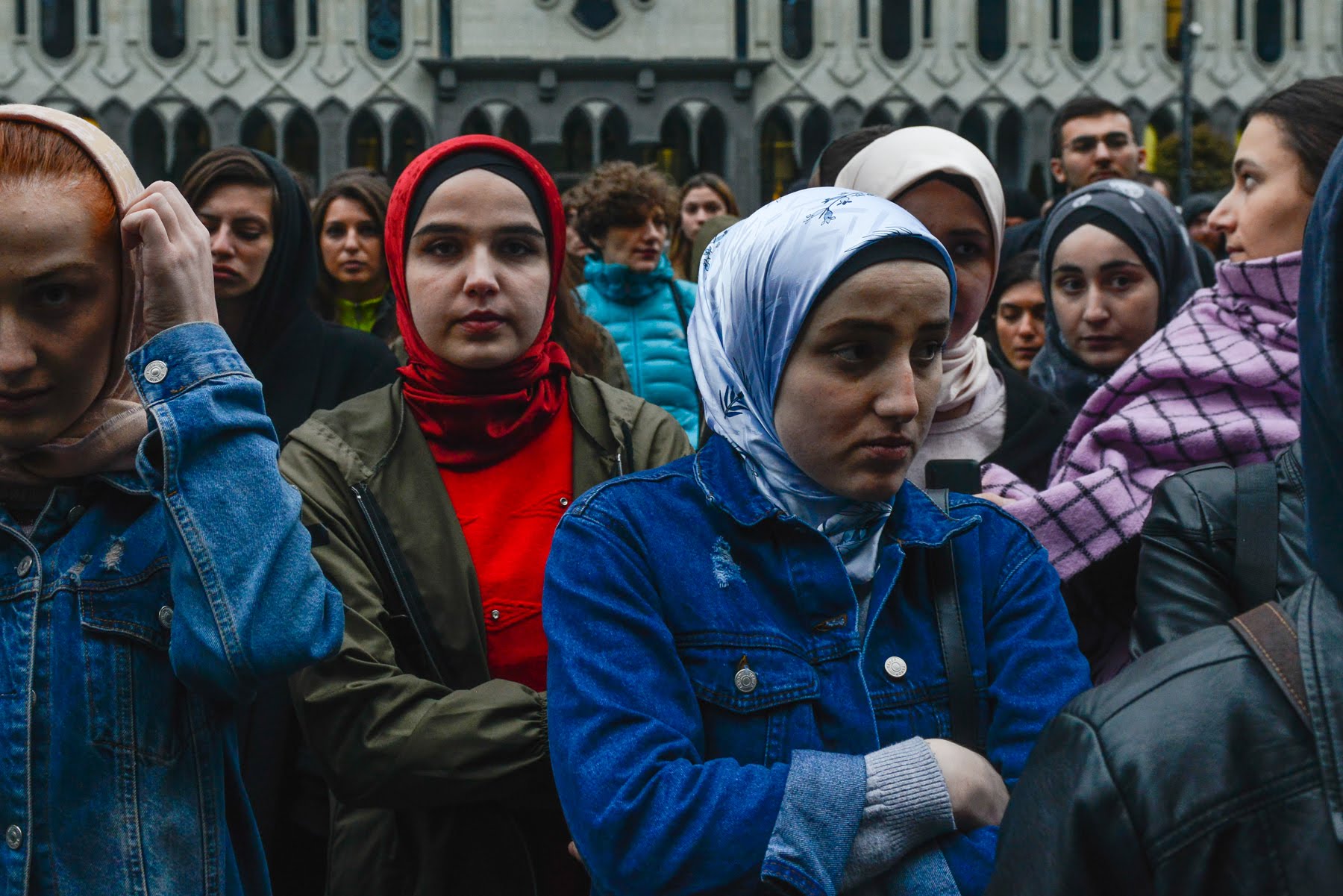
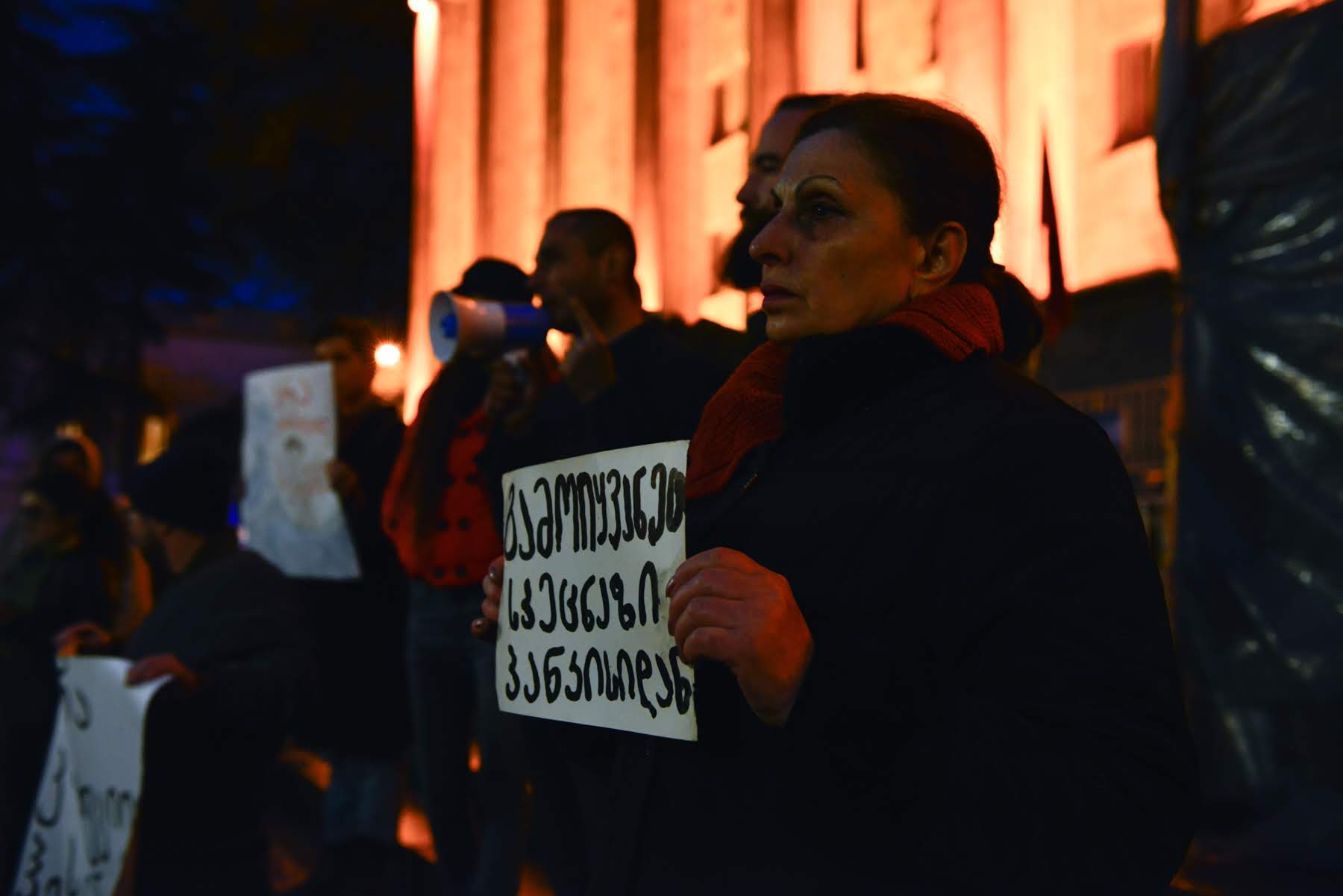
Another demonstration is planned for Monday evening calling for none of the protesters in Pankisi to be prosecuted, for the hydropower projects in the valley to be scrapped, and for those who ordered the ’criminal special operation’ against the protest to be punished.
Tensions over Pankisi HPP projects
Large protests in the Pankisi Valley have been taking place against the government’s plan to build three more hydroelectric power stations since early last year, calling instead for an ‘alternative, sustainable economic development’ model. There are already two HPPs operating on the valley’s River Alazani.
The protesters fear that power plants would destroy the River Alazani’s ecosystem, cause water shortages for pastures, drinking, and irrigation, and strip the valley of its tourism potential.
In July 2018, anti-HPP protesters claimed that police were pressuring them to stop their protests, by summoning them and the valley’s elders to regional capital Telavi ‘to talk’.
[Read more: Pankisi residents complain of police pressure to stop protests]
Relations between Kists and the authorities have also been strained following the deadly special operation carried out in the valley in December 2017 that killed 19-year-old Temirlan Machalikashvili. Local activists claim the operation was ‘a demonstration of power’ and accused the authorities of waging an ‘information war’ against Machalikashvili’s family, rather than punishing those ‘guilty of excessive force’.
[Read more about alleged media campaign against Machalikashvili on OC Media: ‘Leaked evidence’ links Pankisi’s Temirlan Machalikashvili to terror groups]
In February, Tbilisi City Court ruled in favour of the Georgian State Security Service over the killing.
Protests against HPP projects have also recently been held in Adjara, where the authorities have said they may halt construction, and in Lower and Upper Svaneti.
[Read Tatuli Chubabria’s report: Activists fighting Georgia’s hydropower boom complain of exclusion and repression]
Environmental risks
The Khadori 3 hydroelectric power plant is scheduled to be completed by the end of 2019, according to plans from construction company Alazani Energy. The water to the plant will come from the Khadori 2 channel, with a 4.5 km water tunnel from the River Alazani, generating up to 5 MW of electricity.
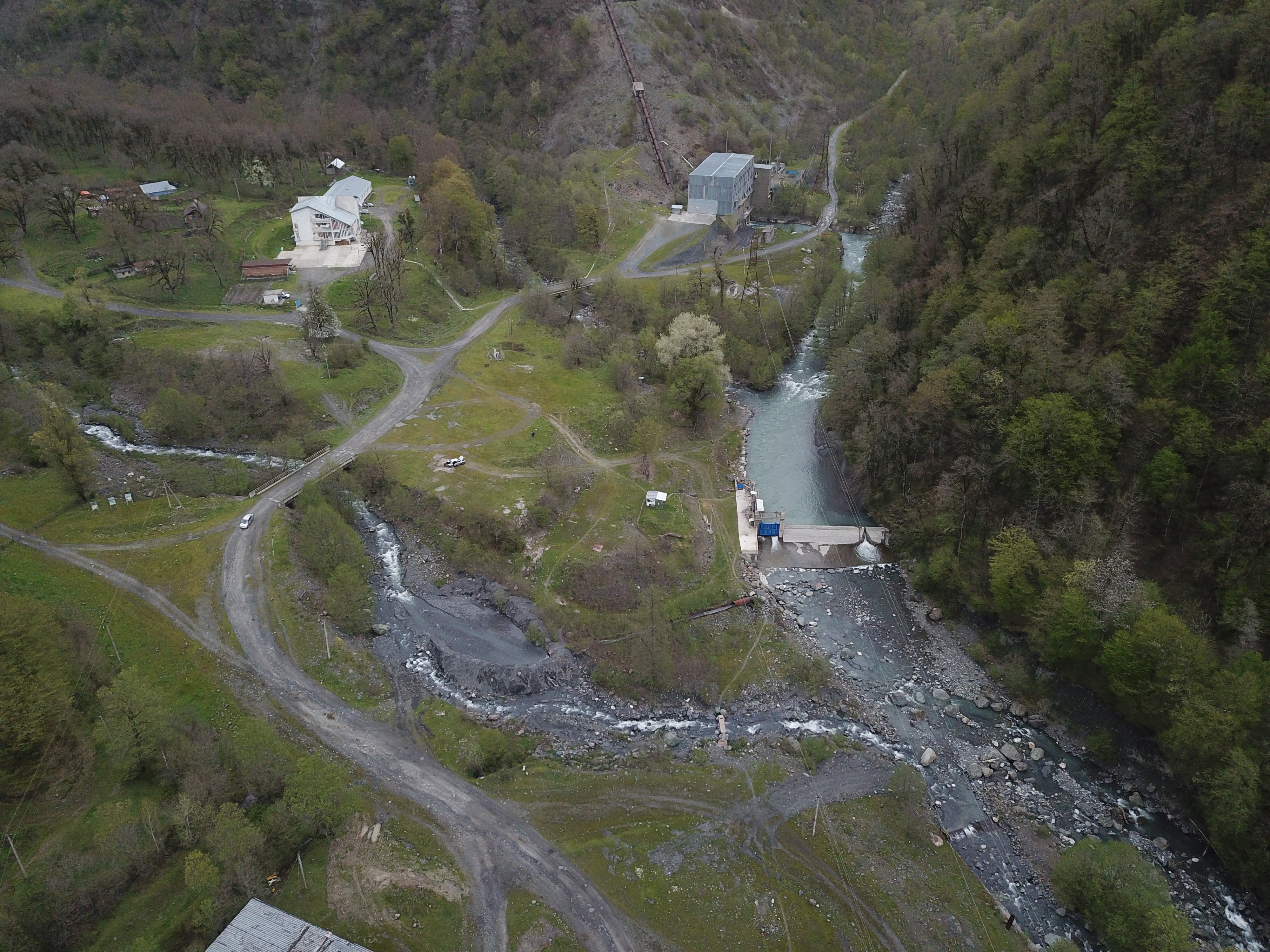
The Khadori 3 project has faced opposition from local people from the start. Alazani Energy and government officials met with critics several times in Tbilisi, promising to create more than 100 jobs in the first year of the project.
According to Sulkhan Bordzikashvili, a local activist from the EMC, Alazani Energy later promised to employ only about 80 local people for the construction, and only a handful after its completion. Bordzikashvili said that the previous hydroelectric power plant built in Pankisi caused water shortages for local people, and that the company failed to provide a fish ladder that would help the river’s fish survive.
The biggest challenge for Pankisi according to many of the protesters, is the effect the projects could have on the development of tourism, including rafting, that could be completely stopped if hydropower stations are built along the entire length of the Alazani in Pankisi.
In the Environmental Impact Assessment conducted for the project, Gamma Consulting predicted a possible worsening of the river’s water quality and widespread detriment to the area’s ecosystem. Georgian environmental group the Green Alternative criticised the report, stressing that the consequences would be far more severe, including serious problems for the local population’s water supply and destruction of the whole Alazani River ecosystem.
Based on the Green Alternative’s findings and alleged irregularities in the procedures of issuing construction permits for the project, EMC filed a lawsuit in early July demanding the permit for Alazani Energy be voided.
The report was amended on 22 April 2019.





